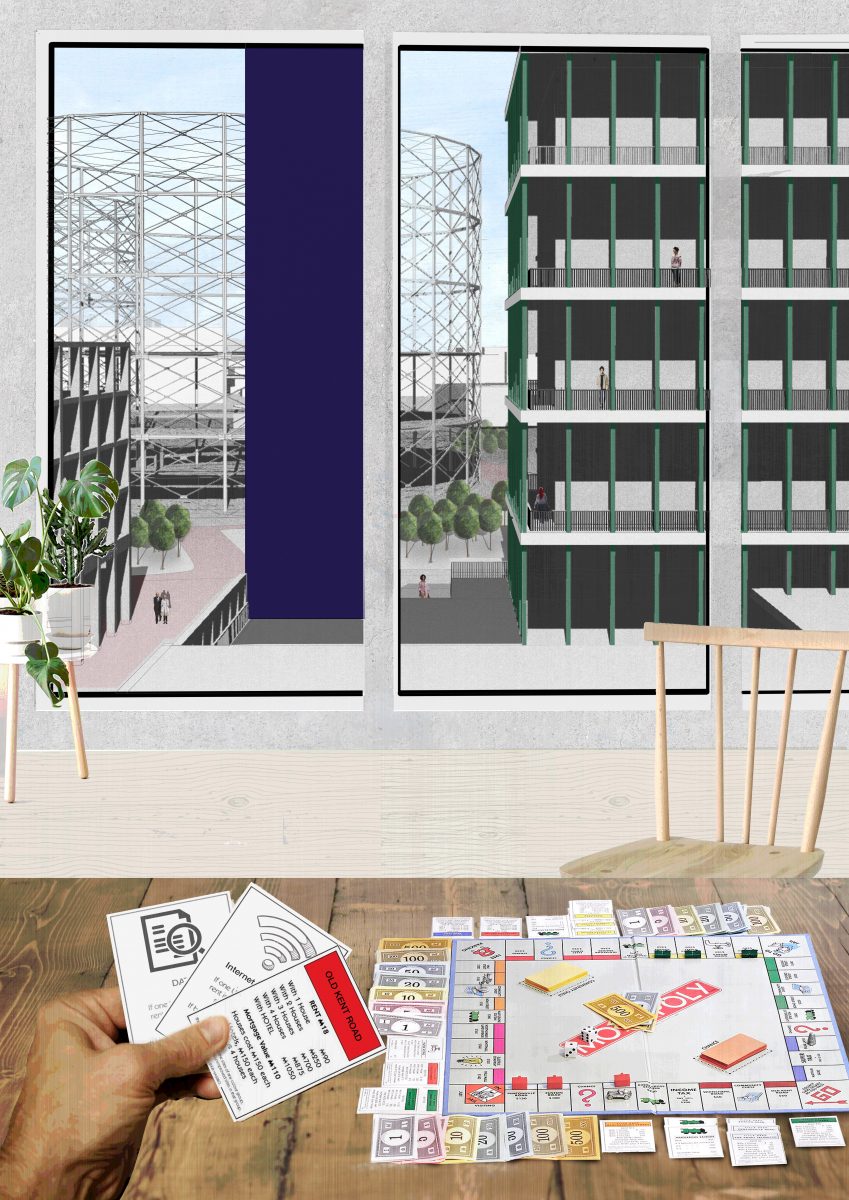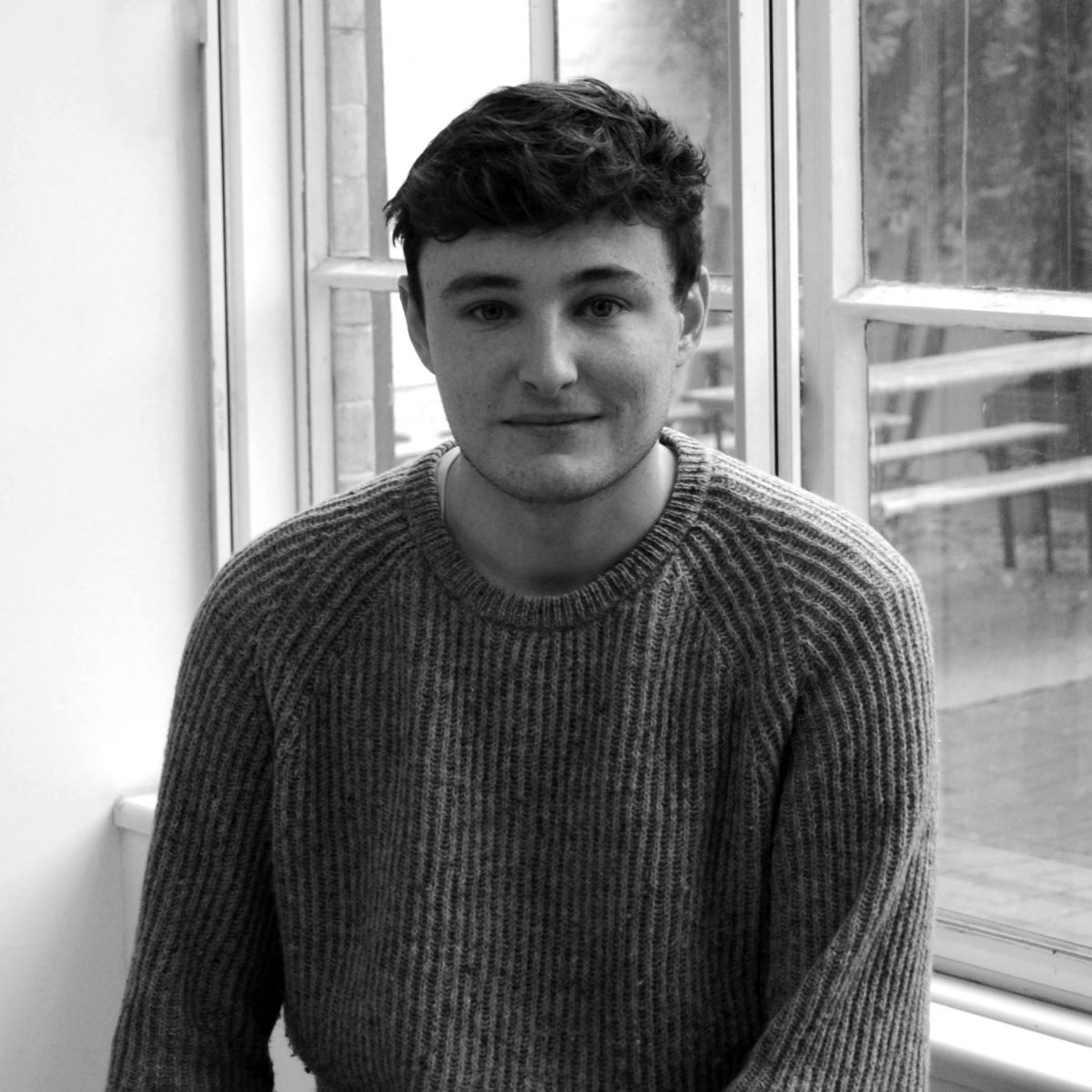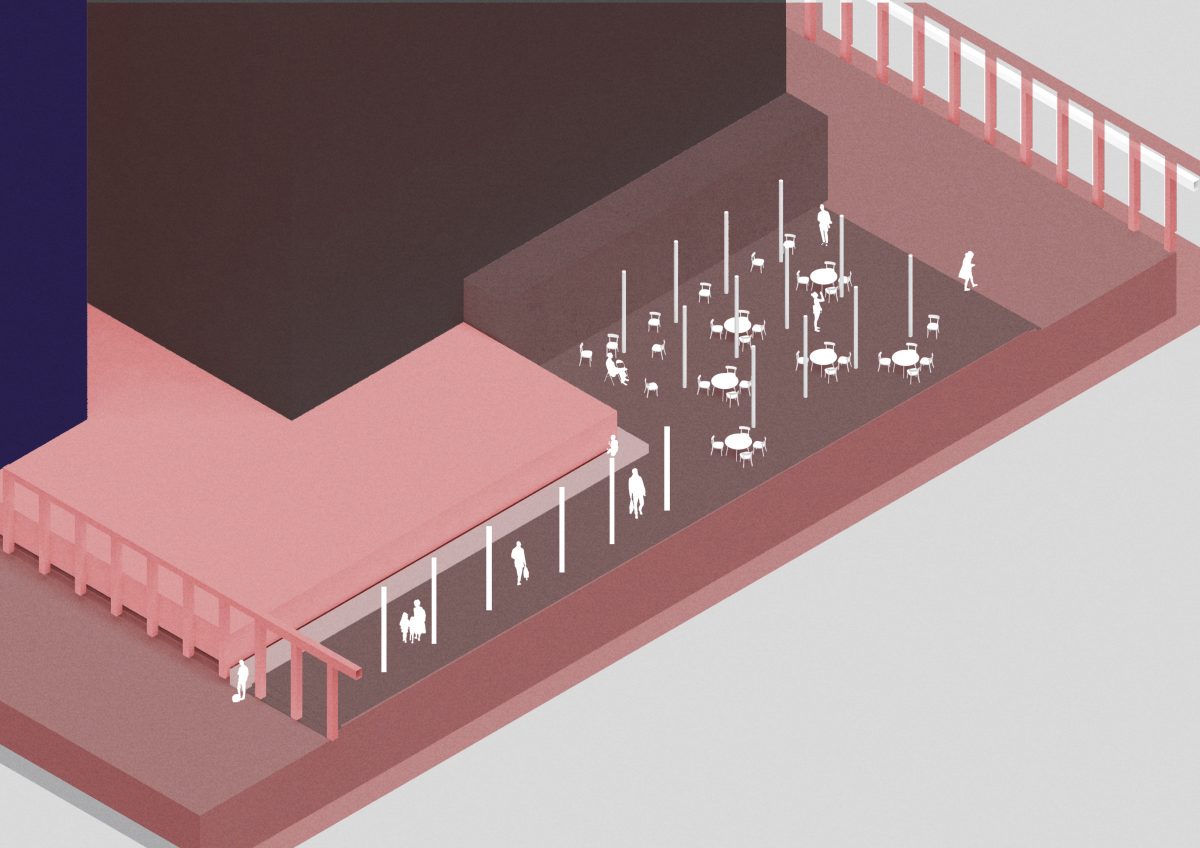PART 0 WINS INSPIRE FUTURE GENERATIONS AWARD FOR FURTHER EDUCATION/HIGHER EDUCATION
LSA AND PURCELL ANNOUNCE NEW PARTNERSHIP
LUCY CARMICHAEL APPOINTED CHAIR OF THE BOARD OF TRUSTEES
PART 0 IS AN INSPIRE FUTURE GENERATIONS (IFG) AWARDS FINALIST
WINTER EXHIBITION – WED 11 & THU 12 DEC: CURATED OPEN HOUSE, EXHIBITION AND OPEN EVENING FOR PART 1s
NEW ROLE: RESEARCH ASSOCIATE – FUTURE SKILLS THINK TANK
JOB OPPORTUNITY: MARKETING MANAGER
ATTEND THE BRITISH EMPIRE EXHIBITION SYMPOSIUM 2024
SEE OUR GRADUATING STUDENTS’ WORK
JOB OPPORTUNITY: CRITICAL PRACTICE TUTOR
JOB OPPORTUNITY: DESIGN HISTORY TUTOR
PlanBEE: Matching young people with work in the Capital
The Dalston Pavilion
LSA Graduate Exhibition 2024
British Empire Exhibition: Call for Participation
LEAD OUR BRAND-NEW PRACTICE SUPPORT PROGRAMME
HELP DEFINE THE FUTURE OF EQUITABLE BUILT ENVIRONMENT EDUCATION
LSA and Black Females in Architecture (BFA) Announce new partnership
24/25 Admissions Open Evening – 6 March
2023 LSA GRADUATES WIN RIBA SILVER MEDAL AND COMMENDATION
STEFAN BOLLINGER APPOINTED AS CHAIR OF THE BOARD OF TRUSTEES
STEPHEN LAWRENCE DAY FOUNDATION SCHOLARSHIP
APPLICATIONS ARE OPEN FOR OUR PART 2 MARCH FOR 2024/25
Open Evening – 7 December 2023
BOOK PART 4 NOW: SHORT COURSES – MODULAR LIFELONG LEARNING – FUTURE PRACTICE
IN MEMORIAM – PETER BUCHANAN
The LSA is Moving
Become a Critical Practice Tutor at the LSA for 2023/24
Become a Design Tutor at the LSA for 2023/24
Pathways: Exhibiting Forms
City as Campus: The Furniture Practice
Summer Show 2023: FLAARE Futures Workshop
Summer Show 2023: Meet Your Future Employer
Summer Show 2023: Close to Home
WE ARE SEEKING A NEW FINANCE MANAGER
Nigel Coates: Liberating the Plan
AN INTERVIEW WITH ELLIOTT WANG, SECOND YEAR REP
PART 4 LAUNCH
IN MEMORIAM – CLIVE SALL
Our Design Charrettes – an insight into life at the LSA
BOOK NOW – OPEN EVENING WEDNESDAY 8 MARCH
An Interview with Emily Dew-Fribbance: LSA Alumna and First Year Design Tutor
Pathways: Optic Translations
Thursday Talks: Questioning How we Embed Sustainable Design in Practice
An Interview with LSA alumna Betty Owoo
Interview with Marianne Krogh – Rethinking water as a planetary and design element in the making of the Danish Pavilion at Venice Biennale
What do our students think of studying at the LSA? We spoke to Second Year student Semi Han
Hear from our Alumni – An Interview with Calven Lee
National Saturday Club Programme
LSA Alumnus Jack Banting published in FRAME
Living with Architects: reflections on my first term at the LSA

Tom’s collage for the Urban Studies module in the first term
Tom Badger, a First Year student at the LSA, reflects on his choice of Part 2 course and what makes the school different.
Since joining the LSA in October 2017 I have found myself reflecting on my choice of architecture school and where it might lead. This feeling is only heightened by the fact that I live with two other trainee architects. When I get home from the LSA (or from my practice placement at DSDHA) I’m faced with the alternative routes to becoming an architect: the choices I did not make.
With one of my flat mates continuing his work as an architectural assistant and the other returning to full-time education, the ‘how was your day’ conversation plays out like a game show where the contestant is presented with the choices they might have made: ‘Let’s take a look at what you could have won!’. Should I have taken another year out? Should I have returned to a more traditional Part 2 course?
No sooner had I completed Part 1 at Newcastle University in 2016, I found myself considering where I might want to study for my diploma. You are gently pushed toward the decision by application deadlines and the imperative to be first-come first-served. It seems intimidating to say the least: where and what you study for Part 2 can have a lasting and profound impact on your progression as an architect. My choice to apply to the LSA was ultimately determined by the enthusiasm shown by the students and tutors alike when I visited for an open day. The school had an energy that I had not experienced at other open days.
So was the LSA the correct decision? As you might expect from a such a young school it has been a challenge at times: adjusting to the work-study balance has been tough and parts of the curriculum have felt a little rushed as a result. However, the course has encouraged me to explore the possibilities (and limitations) of architecture.
The LSA has thrown me head first into a very exciting and very real world. My first term was one of contradiction: of intense practice and intense theory, of difficult questions and difficult answers. But isn’t that what architecture is about? The LSA curriculum addresses the most current and pressing issues, placing itself at the collision point between practice and theory. It is an exhausting, but ultimately rewarding way of thinking.
The LSA suits those who wish to deeply interrogate the role of the architect and the professions relevance in a rapidly changing world. But that does not mean it is the model that must be taken forward by all schools of architecture. I would rather see the course as one of several alternatives to the traditional university format: why should we be expected to follow one limited path to becoming an architect in such a varied discipline? We should imagine a future for architectural education in which a diverse range of courses are offered to a diverse range of people.
I believe it is vital that architecture schools are given the opportunity cross pollinate, to share ideas and debate the future. Living with other architects has allowed me to do so and gain insight in to different ways of thinking and designing. As well as reflecting on my choice of school, it has encouraged me to reflect on the type of architect I would like to become.
Working alongside those immersed in architectural work and those immersed in academia, I have come to conclusion that I’m most excited by the moments in between. I believe the LSA provides a platform for the continued exploration of the tension between practice and theory. In the short time I have been at the school I have been constantly asked to explore current issues and evaluate the role of the architect. It has encouraged me to think critically about the systems of everyday life and the part architecture can play.
Deadline for applications is 26 March. Apply here

Tom Badger

Tom’s drawing for Urban Studies, which focused on the London Borough of Southwark

